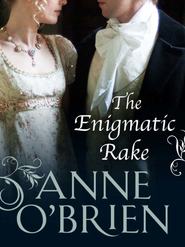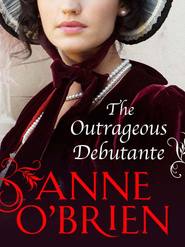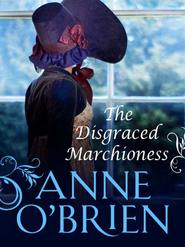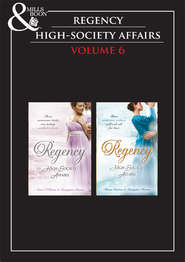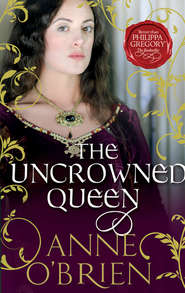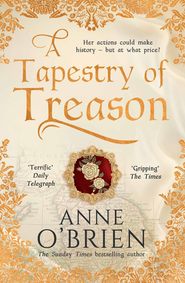По всем вопросам обращайтесь на: info@litportal.ru
(©) 2003-2024.
✖
The Shadow Queen: The Sunday Times bestselling book – a must read for Summer 2018
Настройки чтения
Размер шрифта
Высота строк
Поля
‘Indeed he is. He has been wounded, but nothing short of a spear through his heart will stop Thomas.’ Edward massaged his thigh with his fingers. He still felt the spear wound. ‘I have had reports that he continues fighting, even with a bandage around his head.’
I inhaled slowly. ‘So he is not dead?’
‘Very much alive. Making important friends on the battlefield too.’ Edward’s glance was suddenly keen. ‘I had no idea that you were interested in military campaigns either.’
‘I am not. Except when it is an English victory. And to know that our English knights are fighting bravely.’
Fortunately for me, Edward’s thoughts were elsewhere, his attention claimed by a chart that showed the northern areas of Flanders and France, and his tone became dark with an unexpected foreboding.
‘My task is not finished there.’ He jabbed at it with a finger. ‘I signed a truce with the King of France because I had not the money to continue the siege at Tournai. It was not a bad truce, you understand. I came out of it before my money ran out.’ He grimaced. ‘What King enjoys defeat? For me the truce had the degradation of failure. But I will fight again. My claim on the throne of France through my mother’s blood is one that must engender respect. We will achieve a great victory there one day with the aid of my brave young knights.’ His gaze, still centred on the map, softened. ‘My son Edward will be a greater warrior than I could ever be. He will make of England a name that will last for ever where tales of greatness and valour are told.’
And in spite of my own selfish preoccupations, I was drawn into his vision.
‘I have a thought, you know. Come and look at this.’ He drew me away, a hand on my sleeve to lead me to a book that he took down from a shelf. Opening it, he turned to a picture that I knew well, for these stories had stirred the romance in my youthful soul: a vivid illustration of King Arthur, seated around a vast table with the best of his knights.
‘It is my thought to create an order of knights,’ Edward was explaining, ‘the bravest ever seen since the days of King Arthur. Men who will fight for right and justice and wisdom, for the glory of England and of God. I will choose the finest, the most chivalric, just as Arthur chose. It will be a great honour for a knight to be invited to join such an august gathering.’ Forgetting about me at his elbow, he was fired with the dream, his eyes alight as he turned the pages to illustrations of Sir Lancelot, Sir Galahad, Sir Gawain and a host of others of repute. ‘I see them bearing an insignia which will be known the length and breadth of Europe. My eldest son will be one of the first. William of Salisbury too, my closest friends who have stood in battle with me. Then there are others, young men such as Thomas Holland. We will test their skills in tournaments where they will show their prowess before the whole world. Perhaps even some of the greatest knights from Europe too will be invited…’
It startled me momentarily, that Edward would include Thomas within his pre-eminent body of man. And yet why not? In my eyes he was brave and bold and everything a knight should be. I could see him in my mind’s eye with that shining insignia on his breast, whatever it might be, the magnificent cloak, if Edward decided that is what they would wear. I knew well the King’s taste for the dramatic in clothing. I was swept along with the glory of it, although Edward was unaware.
‘I will have them take an oath to fight against evil, a stern and binding oath to God and St. George. Now he will be the best saint for our emblem, would he not? My knights will promise to fight the good fight, to stand firm. What a magnificent achievement it will be! King Arthur’s knights have lived long in song and story. Mine will live even longer. I will even have my own Round Table…’
I nodded to encourage his enthusiasm, my thoughts with distant Thomas, recipient of such glory.
‘I have a thought about the insignia. A garter with the words Honi soit quit mal y pense. Evil be to him that evil thinks. What do you think to that?’
Again I nodded.
‘They will live up to their oath to uphold God’s and my law, on pain of dismissal. We will have no more scandal in this land. My reign will be remembered for all time for the honesty of its King and its knights. The law will be sacrosanct. It is a dream I have.’
Edward’s words struck home.
An oath. A solemn, binding oath to live a blameless life, full of honour and sanctity.
‘I will not have scandal and treachery and dishonour in this land. I will not have such a travesty of God’s laws. Any knight who dishonours God dishonours me and will be stripped of his knighthood and cast out of the kingdom.’
It made me shiver.
‘But those who are worthy. What do you think, cousin? What colour shall I clothe them in? You have an eye for colour.’
I sought for a reply, while my mind dismantled Edward’s dream.
‘Blue,’ I said. ‘The blue of the Blessed Virgin’s gown.’
‘I knew you would choose well.’
‘I am not sure that I have any bearing on your decision, Edward,’ fear making my reply acerbic. ‘You have made up your own mind. As you usually do.’
He laughed, before sobering quickly, his face once more losing its light. ‘I think that you at least would tell me the truth. I am beset by enemies, Joan, men who sit at my own board, eat my bread, yet would wish me ill. The Archbishop of Canterbury, God rot his treacherous soul, has proved to be no friend of mine.’
I pretended not to understand, when in fact the whole court understood. To Edward’s wrath, Archbishop Stratford had accused Queen Philippa, that most moral of women, of being in an adulterous relationship, since the child she was now carrying must have been conceived when Edward was engaged in the siege of Tournai.
‘Rumour and gossip! How would the scandalmongers know when and where Philippa and I came together to get this child? And were they counting the weeks and months of its gestation?’ Edward railed, his low voice rendering his displeasure even more implacable. ‘They, with their crude and vicious lies, are the true demons in a well-ordered state. My wife is the most loyal, most honourable woman I know. I’ll not allow vicious tales of impropriety to destroy her reputation. You’ll do well to mirror your own deportment on hers, Joan. There must be no stigma in this marriage with young Montagu. I’ll brook no dishonour, no outrage. Get an heir as soon as possible and settle down into married life.’
Closing the pages with a clap that raised yet another cloud of dust, returning the book to the shelf, Edward angled a glance at me, all comfortable intimacy over in the shade of scandal and adultery. ‘Should you not be learning suitable texts or setting stitches, or whatever it is young brides do?’
No, I could not tell him of my predicament. Edward could not rescue me. Indeed, unwittingly, Edward had made all things clear to me, as terribly shining as the gilded image of King Arthur, that he had just hidden with some force.
Chapter Three (#ulink_3f4c0b3d-9f32-51e4-a546-fa7d5bc82074)
Early February 1341: St. George’s Chapel, Windsor
The Bishop cast his eye over the assembly gathered before God, where the royal blood of England was all-pervading, admonishing them to silence with the mere lift of a finger. Edward and Philippa stood amidst the throng. Returned from Flanders, the Queen had honoured me by attending my marriage, before she would depart to the little manor of King’s Langley for her seven-month confinement, closed off from the world until the birth of this child.
All eyes were focused on me. On William Montagu.
A quietness of expectation fell. The Bishop of London beamed at me. Not the Archbishop of Canterbury in spite of my mother’s hopes. He was persona non grata, not welcome in the royal presence as things stood.
Will turned his head, stiff-necked, to give me the glimmer of a nervous twitch that might have been called a smile, before turning to fix the Bishop with an anxious stare.
I was as cold as death. No smile. No anxiety. Nothing beneath my girdle but a grim certainty.
Indeed, my mind was empty after weeks of maternal bombardment, Philippa’s gift of silk and figured damask chill against my skin, heavy in its weight of gold tissue, eminently suitable to a princess on her wedding day. My lungs were icy as I inhaled every incense-filled breath. The only warmth was William’s hand around mine, clammy with nerves. Despite the February damp, I could see perspiration on his brow if I glanced sideways. It had, I surmised, nothing to do with the new liking for sable fur at neck and cuff and hem that gave him a marked resemblance to the monkey, an ill-considered gift from some foreign ambassador to the royal offspring.
I was standing at the altar, hemmed in by the fixed regard of congregation and of the carved saints and martyrs, my hair released into virginal purity, uncovered by veil or coif, rippling magnificently over my shoulders in bright gold, that challenged even the crucifix before which we would take our vows.
The progression of the marriage ceremony wrapped me about, heavy with portent, impossibly different from my first marriage which had been private, personal, secretive. Utterly lacking in any ceremony. Here we were trapped in formal ritual, the Bishop’s robes more bejewelled than mine. If I looked to my left Edward and Philippa were resplendent, lacking only their crowns to enhance their regality, both so young and hopeful, yet to reach their thirtieth year. Ned too was burnished beside Isabella, ostentatiously wearing her reliquary which was no more magnificent than the Salisbury livery collar that was a gift from William to me. It rested on my collarbones, the gems glinting as I breathed with hollow foreboding.
Thomas Holland, I recalled, briefly, had given me no gifts of any kind.
My mother was engorged with her success. Lord Wake merely looked threateningly fierce whenever he caught my eye, which tended to stir a note of hysteria within me. When I had made my vows to Thomas our company had also been of the raptor variety, although they had ignored us.
Countess Catherine was supported by Lady Elizabeth, clad in a vast array of ancient gems. The Earl was still absent, still sojourning as unwilling guest of the French king.
At last the Bishop turned to Will. It was as if the congregation held its breath to absorb the holy vows on our behalf.
‘William Montagu, vis accípere Joan, hic præsentem in tuam legítimam uxorem iuxta ritum sanctaæ matris Ecclesiæ?’
I heard Will swallow, but he did not hesitate.
‘Volo.’
He would not dare.
The space around me grew, leaving me alone and insignificant. This was it. This was the moment for my own declaration of intent.
‘Joan, vis accípere William, hic præsentern in tuum legítimum marítum iuxta ritum sanctæ matris Ecclesiæ?’
I allowed a slide of eye to my mother’s austerity. I saw fear there. I had been declaring my wish to repudiate this marriage since the day she had seized hold of the Montagu proposal.






